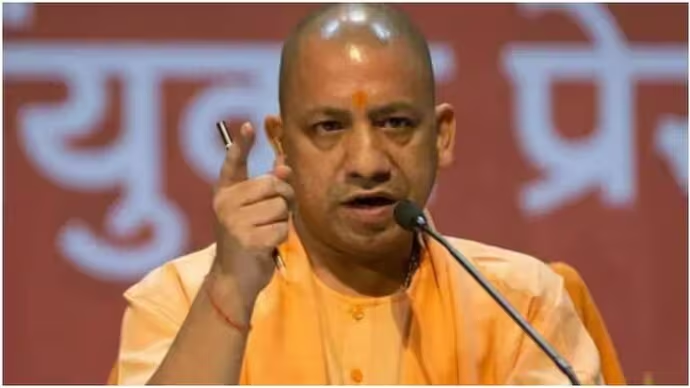Introduction
Yogi Adityanath, the Chief Minister of Uttar Pradesh, has emerged as one of the most prominent figures in Indian politics. Known for his strong Hindutva ideology and a focus on law and order, Adityanath has garnered both fervent support and significant criticism since he took office in 2017. This blog will explore his journey, governance style, policies, and the impact he has had on Uttar Pradesh.

Early Life and Political Ascendancy
Born on June 5, 1972, in Panchur, Uttarakhand, Yogi Adityanath, originally named Ajay Singh Bisht, took a spiritual path early in life, becoming a disciple of Mahant Avaidyanath, the head of the Gorakhnath Math, a prominent Hindu monastery. This affiliation shaped his political career, as he was elected to the Lok Sabha from Gorakhpur in 1998 and became a significant voice for the Bharatiya Janata Party (BJP) and Hindutva.
His rise within the BJP can be attributed to his strong organizational skills and his ability to mobilize Hindu voters. By the time he became the Chief Minister, he had established himself as a hardliner committed to the party’s agenda.
Chief Ministership: Policies and Governance
Yogi Adityanath’s tenure as Chief Minister has been marked by several significant policy initiatives and a focus on law and order:
- Law and Order: Adityanath’s government has prioritized restoring law and order in Uttar Pradesh, which has a history of crime and political unrest. His administration has claimed to take a tough stance on crime, with initiatives aimed at curbing violence and corruption. However, critics argue that this has sometimes led to excessive force and vigilante justice.
- Infrastructure Development: The Chief Minister has pushed for infrastructure development, emphasizing the improvement of roads, highways, and public transport. Projects like the Purvanchal Expressway and various expressways connecting rural areas to urban centers have aimed to boost economic growth and accessibility.
- Healthcare and Education: Under Adityanath’s leadership, the government has launched schemes such as the “Ayushman Bharat” initiative to improve healthcare access for low-income families. Education policies have also been revised, focusing on enhancing the quality of government schools and promoting vocational training.
- Cultural and Religious Identity: Adityanath’s tenure has been characterized by a strong emphasis on Hindutva. His government has undertaken initiatives to promote Hindu culture, including the establishment of a ‘Ramayana circuit’ to attract tourism linked to Hindu mythology. This has resonated with his core constituency but has also sparked concerns over religious polarization.
- Agricultural Reforms: Recognizing that agriculture is the backbone of Uttar Pradesh’s economy, the government has introduced various schemes to assist farmers, including debt relief programs and subsidies for fertilizers and seeds. However, the effectiveness of these initiatives remains a point of debate.
Challenges and Controversies
While Yogi Adityanath has supporters who praise his governance, his tenure has not been without controversies:
- Communal Tensions: Adityanath has been accused of exacerbating communal tensions in a state that is home to a diverse population. His speeches and actions have sometimes been interpreted as inflammatory, leading to fears of increased polarization between Hindus and Muslims.
- Handling of the COVID-19 Pandemic: The response to the COVID-19 crisis drew significant criticism. Reports of inadequate healthcare facilities and the mishandling of cremations raised questions about the government’s preparedness and response. Critics pointed to a lack of transparency and the centralization of information.
- Vigilantism and Human Rights Concerns: Instances of alleged police brutality and extrajudicial actions have marred his government’s image. While he has positioned himself as a protector of the common man, human rights activists have raised alarms about the use of excessive force against marginalized communities.
- Political Opposition: Adityanath has faced opposition from various political parties, particularly the Samajwadi Party and the Indian National Congress. His authoritarian style and strong leadership have led to accusations of centralizing power and suppressing dissent.
Impact on Uttar Pradesh
Yogi Adityanath’s impact on Uttar Pradesh is multifaceted. He has brought a sense of stability and a focus on development in some areas, which has appealed to many voters. The emphasis on infrastructure and law and order has the potential to attract investment and promote economic growth. However, the social and communal divisions that have emerged during his tenure raise concerns about long-term cohesion in a state that is vital to India’s identity.
Yogi Adityanath: A Profile of Leadership and Controversy
Yogi Adityanath’s leadership is a study in contrasts: a figure who embodies the aspirations of many Hindus while simultaneously drawing criticism for his methods and ideology. As Uttar Pradesh continues to navigate its path forward, the legacy of his governance will likely be debated for years to come. Balancing development, social harmony, and political ideology remains a critical challenge not only for Adityanath but for the entire nation as it grapples with its diverse identity and future aspirations.


